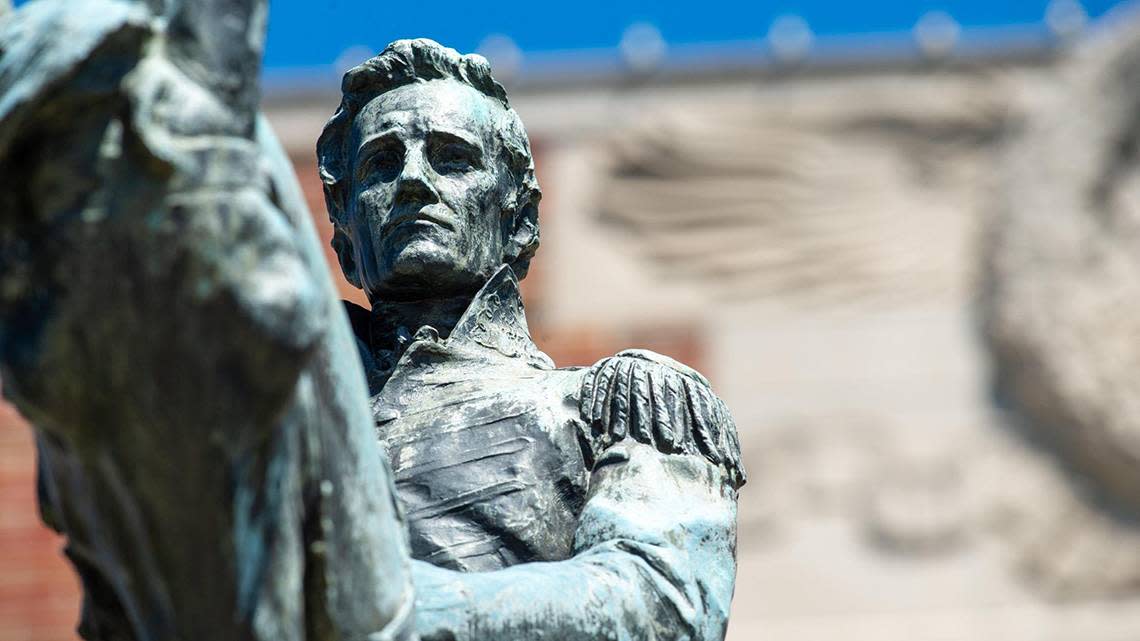In electing a president, do we care more about statesmanship or our emotions? | Opinion

- Oops!Something went wrong.Please try again later.
- Oops!Something went wrong.Please try again later.
- Oops!Something went wrong.Please try again later.
- Oops!Something went wrong.Please try again later.
Tim Sheehy is the Republican candidate for the U.S. Senate in Montana, contending against Jon Tester, the Democratic incumbent, in the November election. According to a just-received fundraising text, Sheehy’s qualifications are:
“Tim is a father, husband, combat veteran, and one damn proud American. He is also the Trump-endorsed GOP nominee in the Biggest Senate race on the map.”
So let’s look at Democrat Jon Tester ‘s campaign. A supporting website informs us that:
“Jon Tester is the third-generation dirt farmer who still farms the same land just outside of Big Sandy that his grandparents homesteaded over 100 years ago Whether Jon is on his farm, traveling the state to meet the Montanans, or on the job at Washington D.C., we can count on him to defend Montana values.”
Combat veteran or dirt farmer: How do these backgrounds qualify either Sheehy or Tester to become one of 100 U.S. senators, who have to deal with the most complex issues in American society? The bills that cross their desks range from budgets for federal agencies and complex policies and legislation regarding health care, agricultural, border security, foreign trade, military agencies, defense and congressional delegation issues. Their votes determine appointment of top governmental officials and Supreme Court justices. The assumption is apparently that voters are too poorly informed or interested to care about candidates’ knowledge and experience, or ability to make wise judgments. Emotional identification is the thing.
Compare the present with the Andrew Jackson era. The first six presidents operated under a federal government system guided by first President George Washington’s principle of appointing officials and employees on the basis of competence and with permanent tenure, given proper performance. Treasury Department designer Alexander Hamilton’s advanced administrative policies helped the U.S. pay off massive debts of the states and make rapid economic progress.
The election of 1828 pitted incumbent President John Quincy Adams, son of President John Adams, against General Andrew Jackson of Tennessee. Young Adams had studied law, French, Greek and Latin, and attended Leiden University. At the age of 14, he served as secretary and French translator to the U.S. ambassador to Russia. He was later elected senator from Massachusetts and served as ambassador to Great Britain and Russia.
Adams was defeated by the rough-hewn Jackson, hero of the Battle of New Orleans during the War of 1812. Besides being a pro-slavery advocate and the architect of removal of the Cherokee people from their homeland, Jackson was a populist, strongly supported by uneducated Irish immigrants. He believed that any citizen could serve in any office of government and his “spoils system” led to turnover in government after presidential elections until well after the Civil War, inhibiting development of stable administrative systems.
Early biographers such as Arthur Schlesinger Jr. and other historians showed partiality to Jackson’s egalitarian principles and popular support over the more patrician Adams, who was against slavery and whose visionary policies included a national university, but who lacked touch with the popular mood. A recent ranking of American presidents by historians continues to rate Jackson No. 2 in party leadership.
Current party leaders seem to be back to the idea that anybody can serve in the most important political offices in the country if he or she has the right persona and opposes the other party strongly enough. Fundraising ads from both parties seem to assume that current voters are like those early Irish immigrants who cared little about statesmanship, but mainly identify emotionally with politicians. The question is whether we really like where this style of politics is leading us.
Frank T. Manheim is a professor at the Schar School of Policy and Government at George Mason University in Fairfax County, Virginia.

